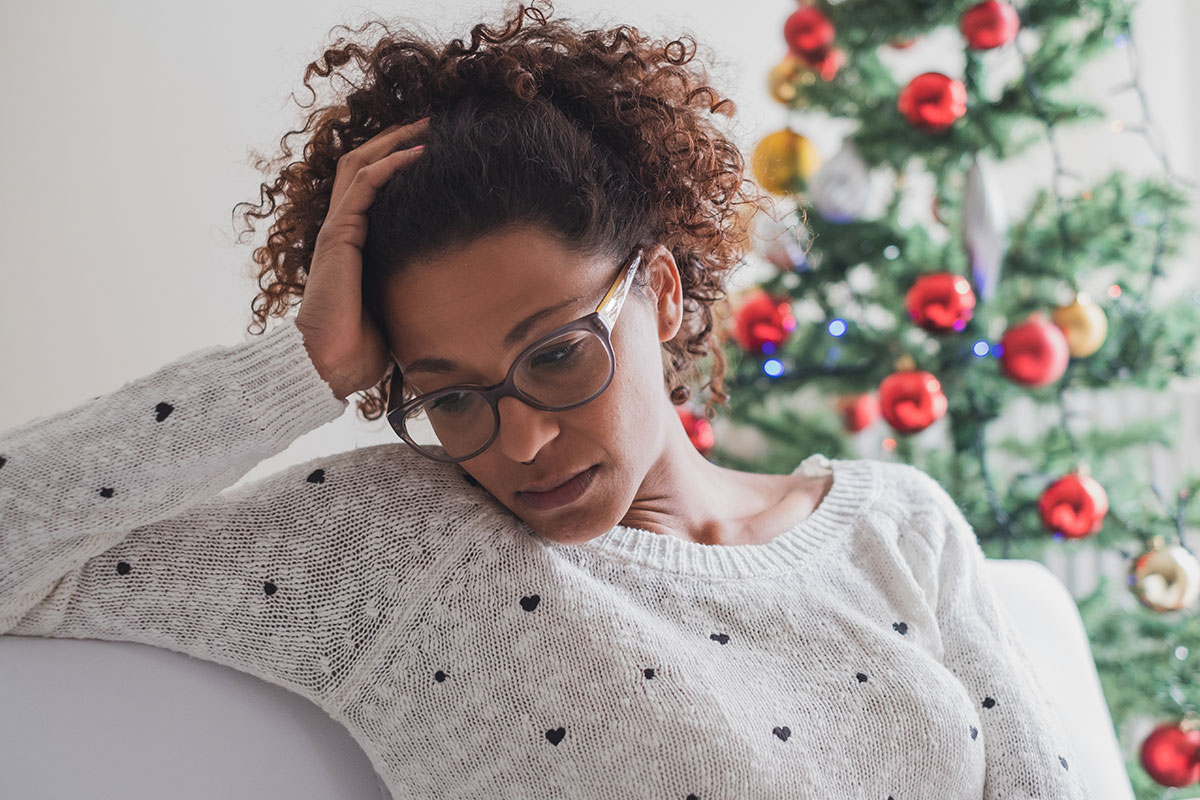
The holiday season is an emotional time.
There are great moments to celebrate—new additions to the family, gathering everyone together for a big meal and just getting what you think is the coolest Secret Santa gift this year (hint: it’s not those candles re-gifted from last year).
But the holiday season can also be dark. A time that feels as if you’re combing through glittering tinsel and super-sweet candy canes just to get a breath of fresh air in the new year. It’s heavy, it’s busy and it’s here.
For more health-related articles sent straight to your inbox, subscribe to our weekly Health e-newsletter.
To catch you before you fall into a hole (much like Cindy Lou did in the mailroom scene of How the Grinch Stole Christmas), we spoke with local psychologist Mary C. Ray, LCSW, ACSW, SEP, of Alexandria.
Below, she shares her tips for coping with everything from overwhelming stress to reliving the loss of loved ones. Cheers to better mental health this holiday season.
The holiday season is off to a running start, with decorations, gifts, advertisements and more already making their rounds in our daily lives. What are some of the ways we might notice ourselves getting overly stressed or anxious about the holiday season?
Notice if you have gone into autopilot. Once you are no longer making conscious choices, you need to stop and reset. Are you beginning to overindulge with food or alcohol, skimp on sleep, awaken in the night with anxiety, skip exercise, quit meditating, bicker with loved ones and/or overspend?
Make sure to eat healthy foods when you are hungry, stay hydrated, get enough sleep, stick with your regular exercise routine, take quiet time to re-center yourself daily or throughout the day, create conscious interactions, slow down, use mirroring more in conversations, make a realistic budget for holiday spending ahead of time and stick to it.
How do we do our best to cope when we get overly stressed?
Put everything you do and how long it realistically takes onto your calendar. Include your self-care routines. Make open spaces [in your schedule] for recharging. As you receive invitations or give yourself tasks, check your calendar first. Make sure to prioritize regular self-care routines, eating healthy, exercising, staying hydrated and getting good rest. Plan in accordance with your priorities.
Be realistic with your time, energy and money. Since holidays add to-dos to your list, take several regular to-dos off of your list. If you like to make home-cooked meals, however you do not have time for grocery shopping and meal prepping, eat healthy pre-prepared meals during this busy time. Get someone to clean your home for you if possible so you can use that time for self-care and holiday events. Make sure you build downtime into your schedule to re-group and check in with yourself, monitor your physical and emotional energy levels.
Also, ask friends to give you honest feedback on how you are doing. Listen to good friends, especially if they share concern for your well-being, and slow down.
Speaking of planning your calendar, when it comes to your mental health, is it OK to say no to certain events or happenings during the holiday season?
Good boundaries make for healthy relationships. Take time to check in with yourself when you receive an invitation. Look at what you have already said yes to. If you feel overwhelmed because there are too many things on your schedule, promptly give people your regrets. No is a complete sentence. No need for long explanations. Saying, ¨No, thank you,¨ is a powerful way to protect your energy and well-being.
If you feel you cannot say no to an invitation that you really do not want to accept, take time to talk to someone about why. If you cannot say no to someone, you really cannot say yes to them either. Holidays are no time for people pleasing. You will sacrifice your health and end up depleted.
What is the best way to cope with interacting with family members during the holidays, of whom may be harmful to your mental health? Should people ever be avoided altogether?
Before planning to see family, make your expectations clear from the start. Let them know what is acceptable and what behavior will result in you cutting your visit short. If family members are unwilling to make the visit safe for you, rethink going to visit them until they do.
Seeking support from a trained mental health professional to sort out confusing relationships is time well spent. Many people have holiday trauma relating to issues with their families. Getting inadequately processed traumas addressed is critical to a better life all days, not only around holidays.
And, be patient and respectful of your mixed feelings. If the past is truly the past, it makes sense to make a realistic space to see family members who abide by your requests. If family members are disrespectful of your desires; push you to commit to more time with them than you are comfortable with; expect you to stay at their home when you prefer to stay elsewhere; be careful, these are all signs of ignoring your reasonable requests. Make wise choices about who to spend time around. Many people have families of choice with whom spending holidays is rejuvenating.
Instead of avoiding all people, be a part of some group. Find your herd. Avoiding people altogether leads to further depression, anxiety and trauma. We need other humans around us to feel safe. If you do not feel safe around others, find a good mental health clinician to work through that. The only way out is through.
For those who might be dealing with the first holiday season after the loss of a family member or close friend, what should they know?
Talk with other family members about what feels right. Decide together to celebrate in ways you have consciously chosen. Some folks find solace in keeping to the same traditions during the holidays. Other people decide to make new traditions, as doing the same thing without their beloved is too painful for them. Bring up the subject of your loss, share stories with those close to you about your loved one. Make it safe for others to speak to you about your loss and let them know how you are doing. Be a part of it all rather than avoiding it all.
The self-care movement has really been a theme this year, and you mentioned it earlier. What are your self-care tips for the holiday season?
Focus on what you are doing well. Give yourself positive encouragement when you are doing something that is good for you.
We find what we look for in our day-to-day living. Look for the good. Make time for yourself to rest and rejuvenate in your schedule. Keep regular bedtime routines, as good sleep is an important component to mental and physical well-being. Be sure to look someone in the eye every day. And increase oxytocin, which means: get good hugs.
If someone is living with depression, what would you suggest to make sure he/she is taking care of themselves during the holiday season?
Be honest. Allow yourself to be where you are instead of faking it. Faking it takes too much energy. Surround yourself with supportive friends. Share with good friends how you are really feeling. Many people feel worse during holidays due to the expectations of others or themselves that everything is supposed to be wonderful. Give yourself permission to be where you are at this point in time. Get professional help if you begin to feel worse. Stop the slide into depression before you find yourself in the pit of despair.
Is there anything else readers should know about coping with holiday stress and maintaining wellness through mental health?
Focus on balance. Budget your time and energy. Be realistic about expectations for yourself and others. Cut down on conflict through conscious, caring interactions. Use mirroring when speaking to others, validate them and ask for the same in return. Do something good for someone else. When we care for one another, we feel better about ourselves and make others’ lives better in the process. It is in giving that we receive.




